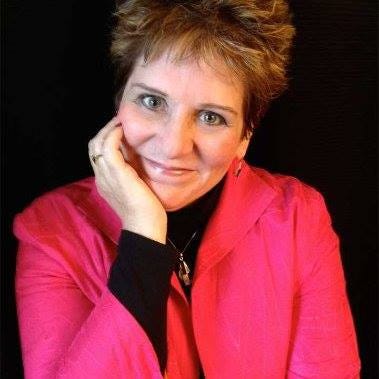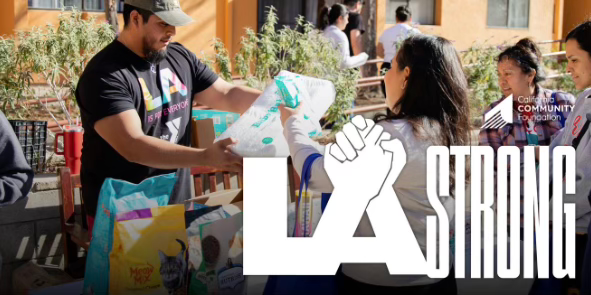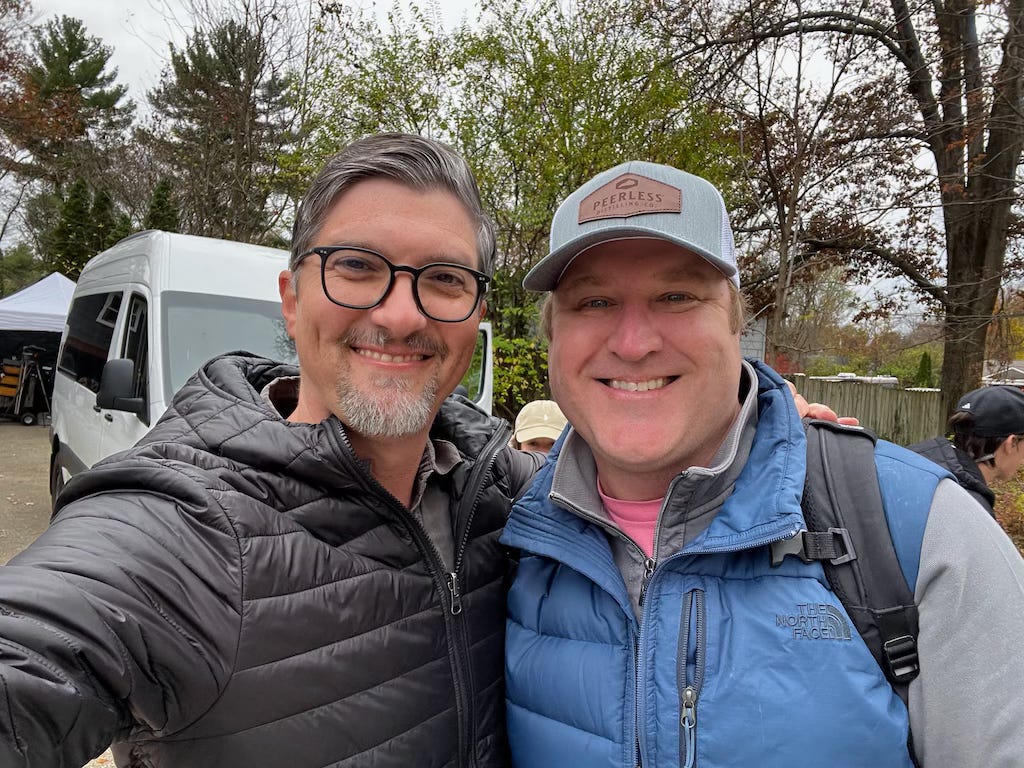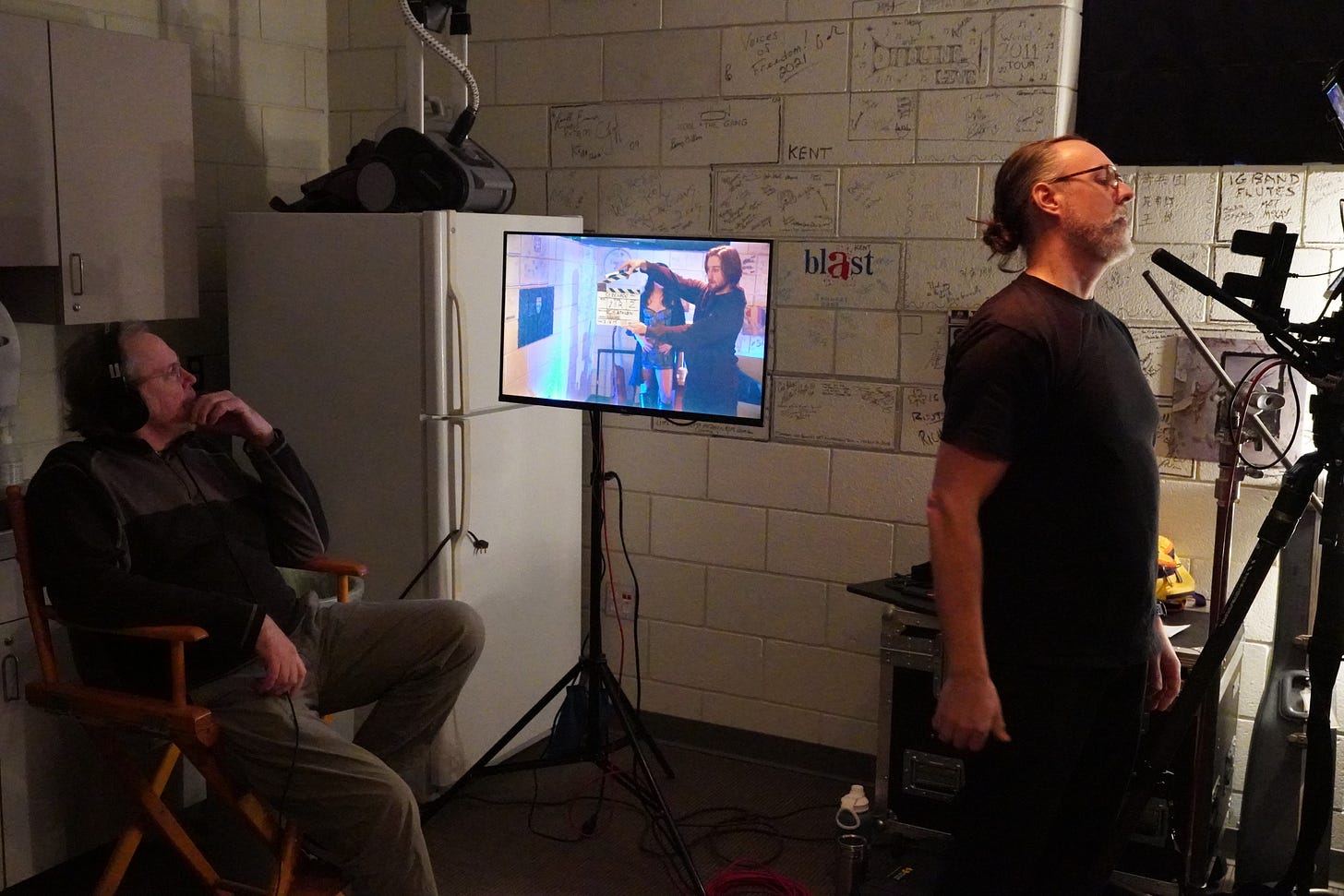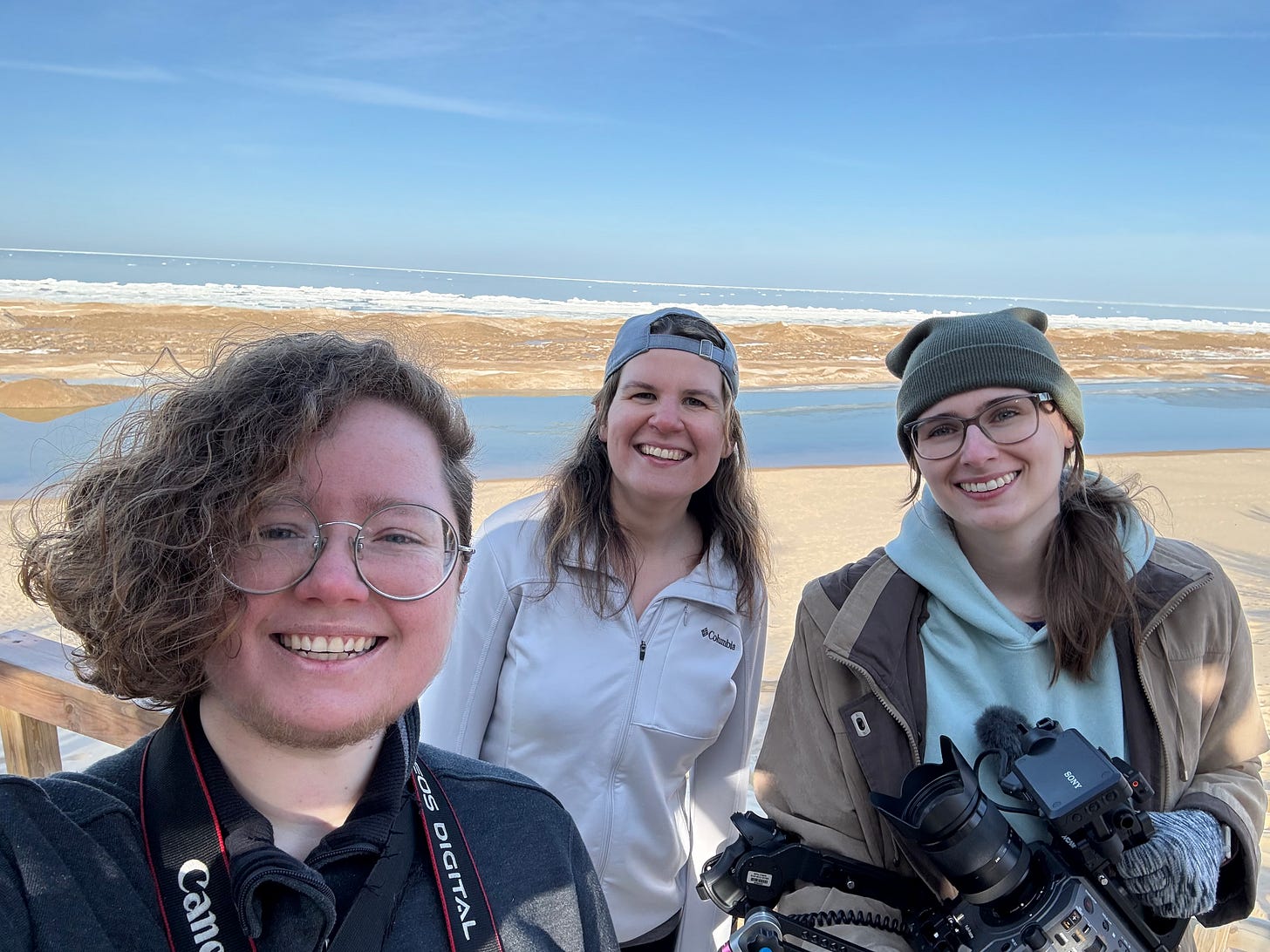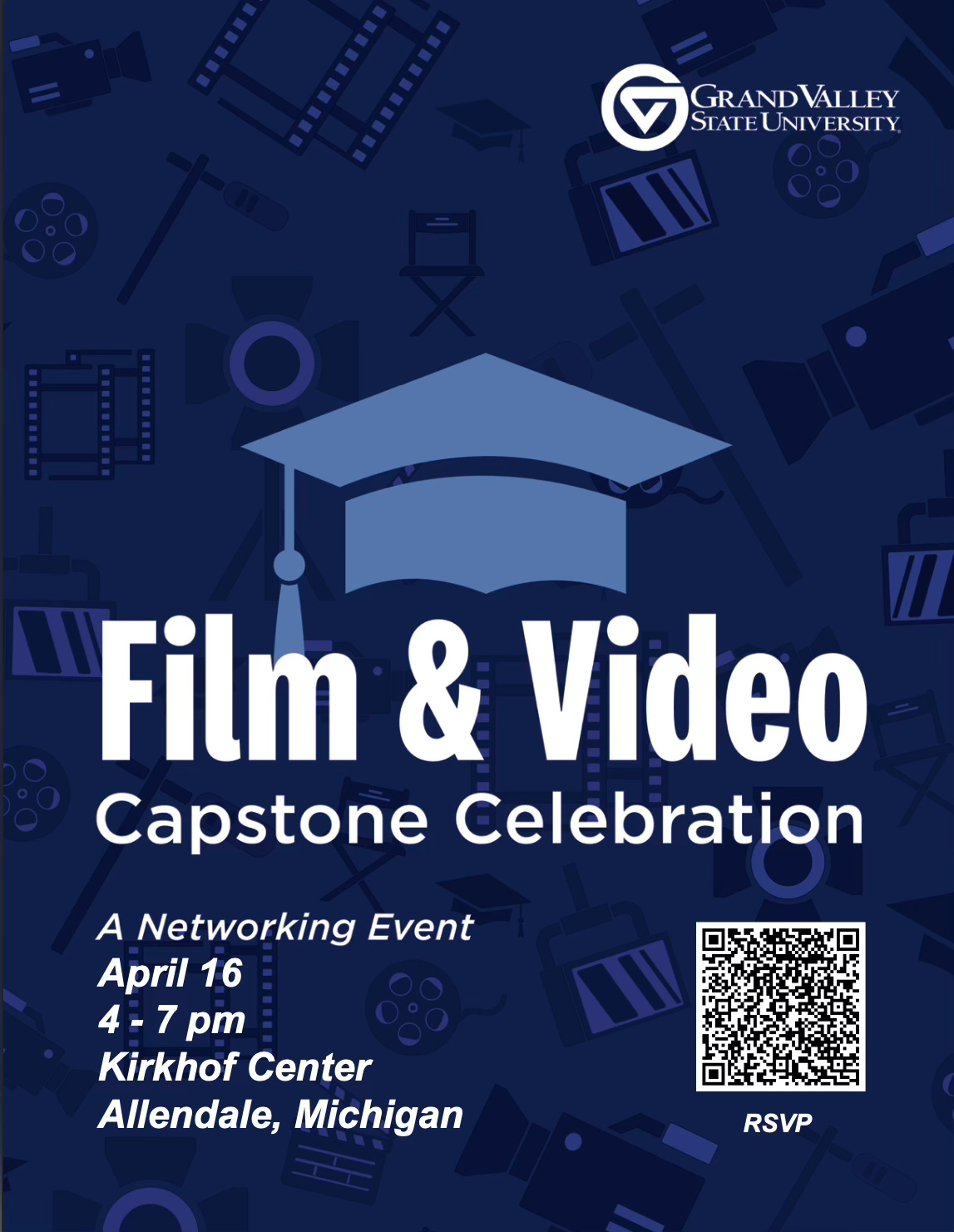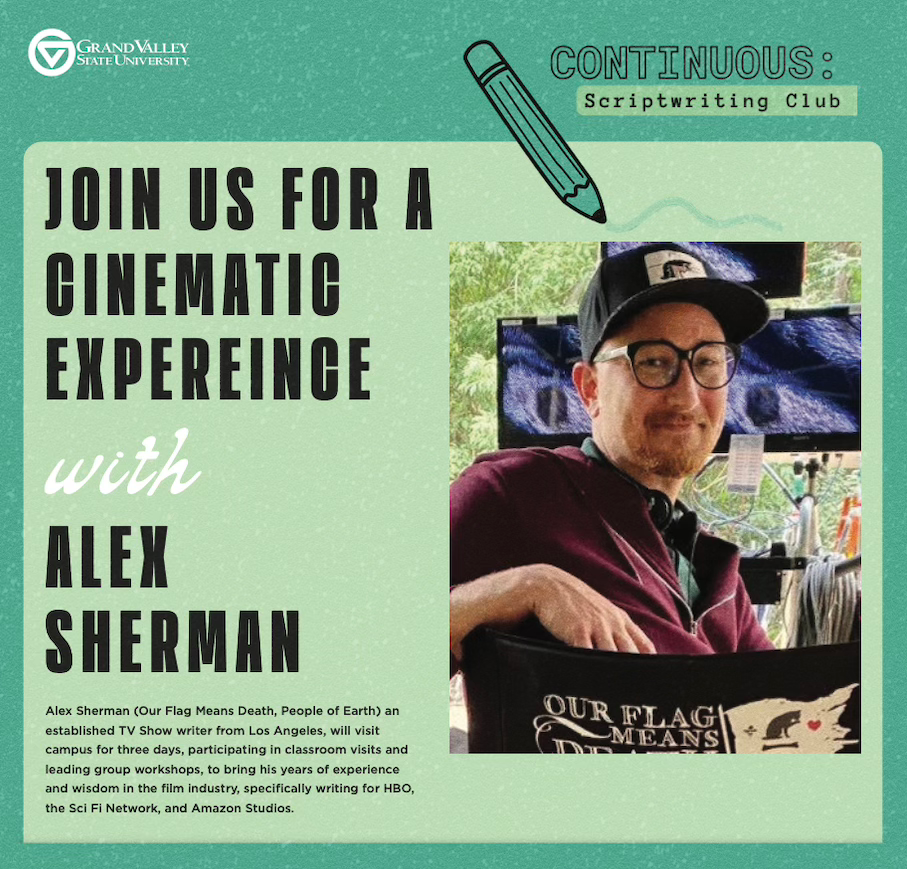End of an Era - Kim Roberts is Retiring
Alumni Network President’s Message
On Location - Updates from Los Angeles and Chicago
Lights, Camera, Lakers! - Alumni Updates
Base Camp - Campus Updates
In Pre-Production - - Student Profile
Behind the Scenes - Is Film School Worth It?
A Call to Action - Supporting Each Other
“How lucky I am to have something that makes saying goodbye so hard.” —A.A. Milne, Winnie the Pooh
Here I am, in the middle of a cross dissolve. My teaching life is fading away while a new adventure comes into view. I’m looking forward to fresh challenges and opportunities, all while knowing I’ve already had it as good as it gets.
As I write this, so many of your faces appear in my mind, bringing a smile to my face and a warmth in my heart. Having the privilege to laugh together and learn together has made my life whole. Thank you for granting me a slice of your life and please know how much joy and inspiration you have created in mine.
"It's time to say goodbye, but I think goodbyes are sad, and I'd much rather say hello. Hello to a new adventure." —Ernie Harwell, voice of the Detroit Tigers for 42 years
— Kim Roberts
Professor
Grand Valley State University
Dear GVSU Film & Video Alumni,
As I step down from my role on the Alumni Network board after seven incredible years—five of them serving as President—I’m filled with gratitude for this community. It’s been an honor to serve, and I want to reflect on some of the milestones we've achieved together.
During my time on the board:
We launched Alumni Live: The Podcast, now with over 50 episodes connecting alumni and students.
We hosted networking events across the country, both in person and virtual.
The Alumni Book has expanded to 175+ profiles, connecting and inspiring the next generation of filmmakers.
I’m especially proud to have established the Women in Cinema student group and the Women in Cinema Mentorship Program, which will continue with new leadership next fall!
The success of these initiatives is a testament to the passion, creativity, and generosity of our alumni community. It’s been amazing to witness how deeply connected we all are, and I’m thankful for every conversation, every connection, and every event that helped make this journey so meaningful.
I encourage you to consider how you can shape the future of our network. Whether it’s through joining the board, mentoring students, or attending events, your involvement makes a lasting impact. The strength of our alumni network lies in the voices and perspectives of everyone who participates.
Thank you for your support over the years. This isn’t goodbye—it’s a call to action. I’m excited to see what we will accomplish next, and I hope many of you will join us in continuing this important work.
Warmly,
— Katie Dehn (2006)
GVSU Film and Video Alumni Network Board President
Women in Cinema Mentorship Program Director
LOS ANGELES
2025 has already been a crazy year for most of us, and those of us in the Los Angeles area experienced record-setting wildfires in the first week of January. The northern metropolitan Los Angeles area was sandwiched between the sprawling Palisades fire to the west in Malibu, and the Eaton fire to the east in the foothills of the San Gabriel mountains. Some GVSU film/video alumni in the area of the Eaton fire had to evacuate their homes and most others in the area experienced power outages, road closures, and dangerous air quality.
After enduring the disruption of COVID and the overlapping industry strikes, including the SAG-AFTRA video game strike and the Writers’ Guild of America strike, the wildfires have only been the most recent blow against those of us working in Los Angeles. Some are rallying behind the #StayinLA initiative, a petition calling for more incentives to bring back Los Angeles-based production after the wildfires.
Anyone wishing to donate to wildfire relief can visit: https://www.calfund.org/funds/wildfire-recovery-fund/
— Kelly Loughlin (2016)
GVSU Film and Video Alumni Network Board Member
Students and alums connect at Noisefloor Sound Studios in Chicago
CHICAGO
Thanks to the generosity and enthusiasm of our Chicago Alums, 11 current students had a life-changing experience exploring career possibilities in the Chicago area over spring break 2025!
The trip was led by current faculty Suzanne Zack (1981) and Career Advisor Lisa Knapp, and supported by the GVSU Career Center, Alumni Relations, the Office of Undergraduate Research and Scholarship, and the Department of Visual and Media Arts.
Shoutouts to alums:
Tom Seffernick (2014), Jordan Skutar (2021), Josh Geyer (2022), for help planning the trip
Bryen Hensley (1993) for the tour of Noisefloor Sound Studios and for hosting the Alumni Dinner
Caleb Hill (2016) for offering the tour of 456 Studio
Jessica Tolliver (2011) for the tour of Keslow Camera and planning help
John Otterbacher (2005) for the tour of DePaul University and planning help
Cherish Pittman (2018) from Full Spectrum Features
Riley (2022) for the tour of the School of the Art Institute of Chicago and planning help
Another highlight was our alumni gathering, hosted by Noisefloor Sound Studios, where alums connected with old friends, met new friends, and welcomed the current students to the community!
Several students are now planning to move to Chicago after graduation. Thank you to all the alums and professionals who welcomed us to the windy city!
— Suzanne Zack (1981)
Senior Affiliate Faculty
Michael Angelo Zervos on his around the world journey
In November 2023, our newsletter profiled Michael Angelo Zervos (2012) and his quest to visit every country in the world. As of February 2025, he is one year and one month into his travels, having visited 165 of 195 countries!
Michael has covered all of Africa, Asia, and Oceania, with Europe estimated to be completed this spring. He is on track to complete his journey (and break the record for the fastest time doing so) around June 2025.
Michael asks one simple question in every country he visits: “What is the happiest moment of your life?” His goal is to show that happiness is achievable for everyone in the world.
Michael has talked with almost 3000 people so far and was among the first group of outside tourists to visit North Korea post-Covid. His record-breaking attempt can be followed on his website and Instagram pages.
Josh Sathre and Patrick Priest on set in Bloomington, IN
Alums Josh Sathre (2005) and Patrick Priest (2004) just wrapped production on the feature film Someone Saved My Life, written and directed by Angelo Pizzo, who wrote "Hoosiers" and "Rudy," and produced by LA-based production company Amasia Entertainment where Josh is the Head of Production. The film was shot entirely on location in Pizzo's hometown of Bloomington, IN. Josh served as Executive Producer on the film and Patrick was the Key Second Assistant Director.
For Josh it was a special project, “Three days into production we found ourselves in need of a new 2nd AD. I called Patrick in LA and he was on set with me in Indiana less than 48 hours later. In over 20 years of friendship, this was the first time since we were in school at GVSU that we’ve actually managed to work together.”
In addition, Patrick says, “It was a cool experience. Rudy is one of my favorite movies, I’m a Notre Dame fan and grew up near South Bend. Other than being able to work with Josh, everything had this throwback feel to college since Indiana University's film program sent students to the set for extra credit and they were allowed access to all the filmmakers. Being able to talk to “the next generation”, as we do to graduating GV students, was another highlight.”
Josh shared this update, “We’re now deep in post-production and can’t wait to find a home for this special movie."
John Harper Philbin on set directing his most recent project
A group of GVSU filmmakers--past, present and future—gathered in February to shoot a proof-of-concept scene for a feature film. Almost all were veterans of Grand Valley’s renowned Summer Film Project, now in its 30th year.
The crew included former professors John Harper Philbin (director) and Joseph McCargar (sound), along with John Despres (art director), and GV alums Keith Golinski (DP), Chris Randall, Thom Bell (G&E), and current film & video student Alejandro Cid.
The screenplay is being produced by Peter Hawley, Director of the Illinois Film Office and Producer of the feature film Driftless, Grand Valley’s 25th Summer Film Project. The new script, written by Philbin and John Dufresne, is Windy City Serenade, a Rock ‘N’ Roll romcom about twin sisters in an up-and-coming Chicago band, starring Sammi Callaghan.
Andi Czachorski, Holly Tumbarello, and Jordan Skutar fiming b-roll for the Holly’s documentary on Lake Michigan
In March of 2020, when GVSU announced that students would be sent home due to Covid-19, senior film and video major Holly Tumbarello (2020) grabbed her camera and began filming. She continued to film throughout the year. From the initial shut downs, to wearing a mask for the first time, to navigating the job search, she recorded her family, friends, and her day to day life with the intention of coming back in 5 years to see how things had changed.
This year, exactly 5 years after GVSU went online due to Covid-19, Holly returned to campus with a camera crew to film the places she had been 5 years before to gain insight on the impact of Covid on the university, her friends, and herself.
She was joined by Alums Jordan Skutar (2021) (now a DP based in Chicago), Andi Czachorski (2019) (now a AD and photographer based in Ypsilanti), and current GVSU film major, Noah Simonait.
“It was impactful to revisit and connect with college friends, former advisors, and all the groups and activities that used to be such a large part of my life. I was able to share what it was like "before Covid" and they talked about changes they have experienced since the pandemic. We all gained perspective.”
Over the next year, Holly and the team will continue capturing footage for a documentary called “The Distance of Dreams” that explores the myriad ways that Covid has shaped our world and our lives.
To get updates on the documentary, check out @thedistanceofdreams on Instagram. To follow Holly’s journey, check out @hollytumbarello on Instagram.
GVSU’s VMA and Film & Video Alumni Network invite alumni, students, and our local media production community to celebrate and welcome a new batch of media professionals.
This is not about looking for work, it’s about welcoming these new grads into our media community.
RSVP here by April 7
Spread the word to other alums and email zacks@gvsu.edu if you have questions.
Hope to see you there!
In February 2025, senior student Caroline Hamilton organized a campus visit from Alex Sherman, a writer from her favorite series Our Flag Means Death. Caroline, who aspires to write for television, had previously reached out to Alex for an informational interview. Alex was so generous with his advice and encouragement, Caroline invited him to campus as a guest speaker. The 3 day event was hosted by Continuous, the scriptwriting club, and supported by the GVSU Office of Student Life.
Sherman spoke to several classes and led three workshops in which over 60 students learned about the industry and how to develop as a writer.
Caroline cites the visit as an example of the power of networking and building personal and professional connections. While breaking into Hollywood can be scary, Sherman highlighted the importance of just being curious and ready to learn.
Caroline summed up the advice by noting, “You don’t have to know everything or everyone. You don’t have to be the best or smartest in the room. But if you are excited and willing to try and learn, people are often willing to give you a chance.”
Mike Judd and Jackson Ezinga lead an Assistant Director virtual workshop
Thanks to alums Mike Judd (‘99) and Jackson Ezinga (‘13) for guiding students through an intensive remote workshop about Assistant Directing for television and film for the 3rd “Alumni Present” Workshop.
They shared stories and walked students through the processes, paperwork, and decision making inherent to television and indie production.
Writer Alex Sherman and current student Caroline Hamilton during the 3 days of workshops
Senior Caroline Hamilton looks forward to exploring the world of film and television writing after graduation. During her time at Grand Valley, she has worked at Productions Support Resources, where she is the Film and Video Lead. She has also worked at The Bridge where she helps create media resources for faculty. In addition, she is a Teacher’s Assistant and is the President of two clubs - Women in Cinema and Continuous: Script Writing.
Over the last two years, as President of two clubs, Caroline has contributed to the major by coordinating on campus 3 day workshops with two outside speakers, independent filmmaker Wendy Jo Carlton in 2024, and writer Alex Sherman in 2025.
Caroline is currently working on Philia, her senior thesis short film. She credits her GV experience with boosting her confidence and introducing her to valued friends and professional collaborators.
These days, anyone with a camera and an internet connection can teach themselves filmmaking. There are thousands of tutorials on YouTube, affordable gear, and AI tools that can make even amateur projects look polished. So why bother with a formal film education? Do you really need to go to college for film and video when you could just learn by doing?
Ask professionals who hire in the industry, and they’ll tell you: A degree doesn’t just teach you how to operate a camera. It builds a foundation that self-learning often lacks. Here’s why that matters.
We asked alums filled out a form for the Alumni book and we culled comments in the article from those form submissions.
1. Film School Teaches You to Work as a Team
Filmmaking isn’t a solo act. Even if you’re a one-person crew today, most jobs in the industry require collaboration. College puts you in an environment where you learn to share creative control, work through disagreements, and refine your ideas based on feedback.
“The collaboration in class helped me transition to the professional world of video. The experience taught me how to be flexible throughout the creative process, understanding that great ideas often come from teamwork and open-mindedness.”— Shane Ellis, 2012
“Being able to collaborate with your peers in a safe space and experiment on how you want to create your art. In addition, I think being able to work on unlimited student projects helped create skills that I was able to carry over to the actual world.” - Thomas Z Seffernick, 2014
The ability to take feedback and work within a team is something self-taught filmmakers often struggle with. In college, you get used to it early—and that makes all the difference when you step onto a real set.
2. You Get Hands-On Experience with Professional Equipment
Sure, you can buy a DSLR and shoot on your own, but film school gives you access to high-end cameras, lighting rigs, and professional editing suites. More importantly, you learn how to use them properly.
“Key experiences at GVSU that have been pivotal in my career include participating in the summer film project, where I had the opportunity to work closely with industry professionals and gain hands-on experience with professional equipment such as C-stands and lighting.” — Dane Covey, 2008
Having experience with industry-standard tools makes you more hireable. It’s one thing to understand the theory of lighting; it’s another to have actually worked with an Arri kit and know how to flag a light properly.
3. Networking Opens Doors You Can’t Get Alone
Some of the best job opportunities come from knowing the right people. In film school, you meet peers, professors, and visiting industry professionals who can connect you with real jobs.
“The whole reason I have a job today is because of alumni & classmates who I've kept in touch with. The collaborators I had on school projects and continue to work with have propelled me far beyond anything I thought possible before attending Grand Valley.” — Jim Sturtridge, 2018
These relationships often turn into long-term working partnerships. The people you collaborate with in college may be the ones hiring you—or recommending you for a gig—years down the line.
4. Mentorship and Guidance Make a Difference
Watching a tutorial online can teach you a skill, but it can’t give you direct feedback on your work. Film school provides access to experienced faculty who offer critique, industry advice, and career guidance.
“GVSU taught me the importance of receiving and applying feedback, a crucial skill in any career, especially in an industry where constructive criticism is constant. Learning to handle it early in college prepared me for the professional world.” — Dane Covey, 2008
“People love being a mentor. They love the idea of being a mentor. And if you give them that opportunity of saying, hey, I'm seeking a mentor and you seem really cool and I would love to just have a couple chats with you. 90 percent of people are going to say yes. Because, who doesn't like the idea of someone looking up to them and wanting to hear your wisdom and your advice?” — Kyle Macciomei, 2020
“This industry, as you will hear so many times, is 100 percent built on connections and people are more than willing to talk to you. I've reached out cold to people through the Writers Guild websites and other websites, and they are more than willing to mentor you and talk to you and just get to know you and help you as you move forward in your careers.” — Caroline Hamilton, 2025
A good mentor can challenge your ideas, push you to improve, and help you avoid common industry pitfalls. That’s something self-study rarely provides.
5. You Discover Your Niche
You may start film school thinking you want to be a director, only to discover you love cinematography—or sound design, or producing, or script supervision. College gives you room to explore before committing to a path.
“When I won the WGVU-TV scholarship for my senior year, I stepped out of the "box" and enrolled in Criminology 101. This class really piqued my interest in the public safety field and opened my eyes to another type of broadcasting; public safety communications.” — Chriss Lyon, 1991
“The most valuable part of my experience at Grand Valley was the extensive hands-on involvement in a variety of roles. While I initially aimed to be a filmmaker (I have directed several short films and a feature) the broad exposure during school helped me discover a niche in the industry where I could build a sustainable career.” - Gary Hebert, 1997
“One class that I found incredibly helpful in my current career was a film editing class with Suzanne Zack. In that class, we had the opportunity to edit a variety of content, including commercials, documentaries, fiction, motion graphics, and more. This experience was instrumental in helping me determine which form of video I enjoyed working with the most.” - Amanda Schaab, 2023
“You might begin film school envisioning a future as a Hollywood director, only to discover an unexpected passion for cinematography, sound design, producing, or script supervision. Along the way, you may also find opportunities that extend beyond the traditional film industry, such as medical videography, corporate communications, education and e-learning, social media and digital marketing, nonprofit advocacy, event production, or gaming and interactive media. The versatility of a film degree opens doors to countless paths, allowing you to creatively tell stories and solve problems in unexpected ways.” - Kyle Macciomei, 2020
Without that exploration, you might never realize the full range of career possibilities available to you.
6. Immersing Yourself in Film Activities Beyond the Classroom
Film school isn’t just about attending lectures and completing assignments. Many programs offer clubs, student organizations, and extracurricular projects that let you experiment, take risks, and collaborate in new ways. Whether it’s joining a student-run production company, working on film festival committees, or competing in 48-hour film challenges, these activities help you build your portfolio and connect with others who share your passion.
“I could construct a perfect four year experience as a film major, though ultimately to follow this exact plan would be far too unrealistic. Idealistically, you'd come in as a freshman, you'd see something like GVTV or the Script Writing club, saying, I just want experience. I want to meet people, I want to practice, I want to make stuff. And you do that during your freshman year. And then your sophomore year you think, ‘I want to get better experience doing something a bit more advanced. Maybe I'll go work for The Bridge, which, famously like, we like to hire freshmen and sophomores, people who want to get their feet wet. Then you do that for maybe a year, get some experience. Then the next step after that would be, ‘oh, hey, I want to level up, maybe the Promotions or WGVU, or maybe you find an internship, something really cool. That last step is really where you ask, ‘what do I do next?’ And that's finding other professional Grand Rapids resources and production companies to learn from. Whether you get hired or receive an unpaid internship, the important thing is to learn about professional opportunities beyond the campus. With each opportunity, you feel more confident, the imposter syndrome starts to fade, and you realize there are more things in the world you can do, that you are capable of doing, and that you deserve to be able to do.” - Kyle Macciomei, 2020
For a deeper dive into the value of these immersive extracurricular activities for film majors at Grand Valley, listen to the Alumni Live: The Podcast episode called Get Involved on Campus.
So, Is It Worth It?
Self-taught filmmakers can absolutely succeed, but a formal education offers advantages that are hard to replicate alone. Film school isn’t just about learning technical skills—it’s about collaboration, mentorship, networking, and professional development. The industry isn’t just looking for people who can operate a camera; it’s looking for people who know how to work in a team, take criticism, and adapt.
That’s why film school still matters.
Our nation is currently facing significant challenges that are directly impacting the film and media industry and the values we hold dear. As alumni of Grand Valley State University's Film and Video major, we can support each other and act in the face of these crises.
How We Can Help
1. Support Those Affected by California’s Wildfires California’s wildfires have disrupted production schedules and displaced many individuals in our industry. Consider donating to relief efforts.
Donate: California Community Foundation
2. Advocate for LGBTQ+ Rights, DEI Initiatives, and Immigrant Rights The recent rise in executive orders attacking LGBTQ+ rights, immigrants, and DEI efforts is deeply concerning. As filmmakers and media professionals, we know that media has the power to shape opinions, change hearts, and create understanding. Now, more than ever, we must continue advocating for inclusive storytelling and supporting policies that protect marginalized communities. It’s not just about ensuring diverse voices are heard on-screen, but also in the creation and production process itself.
Sign petitions and write letters to your state and federal representatives
Donate & Volunteer with LGBTQ+ nonprofits
Donate & Volunteer with Human Rights Advocacy Organizations
Run your productions with DEI initiatives
3. Career Resources for AlumniIf you need career advice, GVSU is here to help with resources available to alumni at any time post-graduation.
GVSU Alumni Career Resources: Explore resources available to all GVSU Alumni.
Laker Lifetime Learning Account: $1,000 Lifetime award for alumni furthering their education.
Together, We Are Stronger
Now is the time for us to come together as alumni to support each other, advocate for change, and keep pushing forward in the face of adversity. Let’s continue to create, collaborate, and lead with purpose.
— Katie Dehn (2006)
GVSU Film and Video Alumni Network Board President
Women in Cinema Mentorship Program Director
Writers and Contributors to this edition of the newsletter:
Adam Brown (2021)
Katie Dehn (2006)
Kelly Loughlin (2016)
Kim Roberts
Michele Terpstra (1995)
Suzanne Zack (1981)
Layout and formatting for this edition of the newsletter:
Loren Karschnia (2027)





